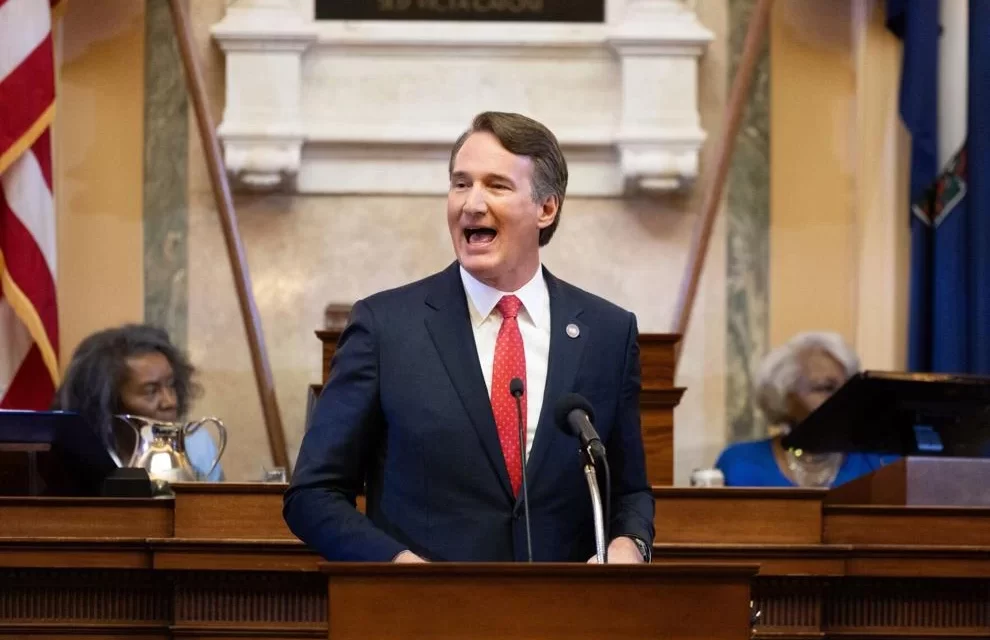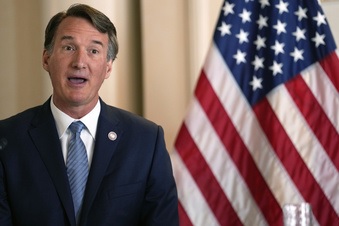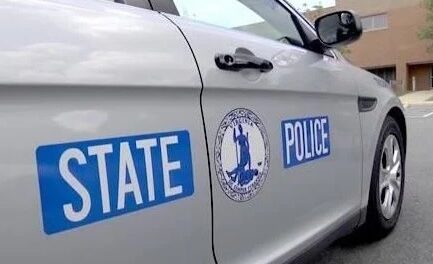RICHMOND, Va. (AP) — Gambling regulations, school construction and the state budget were on the agenda for Virginia lawmakers returning to Richmond on Wednesday to consider Republican Gov. Glenn Youngkin’s proposed amendments to legislation and his record number of vetoes.
Democrats who control the General Assembly don’t have the numbers to override Youngkin’s vetoes without GOP support, but their leaders have signaled that they plan to reject many of his proposed changes, including most of those he made to the two-year budget bill. Youngkin’s rewrite of the spending plan — he’s submitted more than 200 amendments — was so extensive, it exceeded the governor’s authority, legislative leaders say.
“If you think of the governor as a surgeon, the Constitution authorizes nips and tucks, but not organ transplants. And his 233 amendments are trying to give the budget a new heart, lungs and kidneys,” said Senate Democratic Majority Leader Scott Surovell, who predicted lawmakers would reject the vast majority of Youngkin’s proposed changes to that bill.
Prior to Wednesday’s so-called reconvened session, Democratic lawmakers spent weeks publicly at odds with the governor over the budget that they sent him in a bipartisan vote on the final day of their regular session.
Youngkin embarked on a series of public events during which he blasted what he called the “backward budget,” criticizing lawmakers for including a sales tax expansion to digital products that he initially proposed at the start of the process in December but had paired with an income tax cut that Democrats rejected. The governor has said unequivocally that he won’t sign a budget that increases taxes.
With his budget amendments, the governor has proposed sticking with the tax policy status quo, which required him to also suggest spending cuts and other accounting maneuvers to account for the revenue that would be lost by eliminating the new digital sales tax.
Democratic Del. Luke Torian, who chairs the House of Delegates’ budget-writing committee, signaled in an interview Tuesday that his caucus has no intention of going along with that proposal from the governor.
“The new digital economy (tax), as we call it, is something that’s important to us,” he said.
Lawmakers’ objections to Youngkin’s budget changes could very well result in a version that he ends up vetoing, something longtime government observers say would be unprecedented.
“My thinking is, we’re just at the beginning of the battle,” said Bob Holsworth, a veteran political analyst and commentator.
The governor has said he hopes to avoid that option, however. He struck an optimistic tone in a statement Tuesday, saying he was encouraged by extensive discussions with legislators from both chambers and both parties.
“Tomorrow is another step towards our destination, which is to pass and sign a common ground budget,” Youngkin said.
Lawmakers will also be working through dozens of other bills Youngkin returned to them with suggested changes, including a heavily lobbied measure dealing with so-called skill games, gambling machines that proliferated in convenience stores and other small businesses around the state before lawmakers passed a ban in 2020.
This year’s legislation would legalize, regulate and tax the machines, though the changes Youngkin suggested would implement far stricter limits and a higher tax rate than the version the Assembly sent him. Convenience stores around the state staged demonstrations this week, briefly halting lottery ticket sales Monday and closing for an hour on Tuesday, in an effort to draw attention to the issue and urge lawmakers to reject the governor’s amendments.
Surovell said he saw the skill-games bill as one of two that could potentially face a veto override, the other being a measure that would have allowed all localities to hold a referendum on raising sales taxes to help fund school construction. The bill passed with strong bipartisan support and has been supported by school officials in red-leaning rural areas.
In remarks Tuesday with reporters, House Speaker Don Scott said he’s gotten calls from school superintendents in southwest Virginia who questioned the veto. Scott also criticized the governor for a proposed amendment that would ban state funding for abortions in cases of severe fetal abnormalities.
Between Youngkin’s proposed amendments and his record number of vetoes — more this year alone than in any of the complete four-year terms of the state’s past seven governors, according to the nonpartisan Virginia Public Access Project — the governor showed he’s no moderate, Scott said.
“He went after the most vulnerable citizens again,” Scott said. “And so we’re just saying that he’s not a middle-ground, bipartisan governor. He has been an extreme — I call him MAGA-in-disguise — governor,” Scott said, referring to the “Make America Great Again” slogan of former president and presumptive GOP presidential nominee Donald Trump.
Virginia’s reconvened sessions can last up to 10 days but are typically a single-day affair. Surovell said he expected this year’s work could be completed in one day but he left open the possibility it could go longer.









